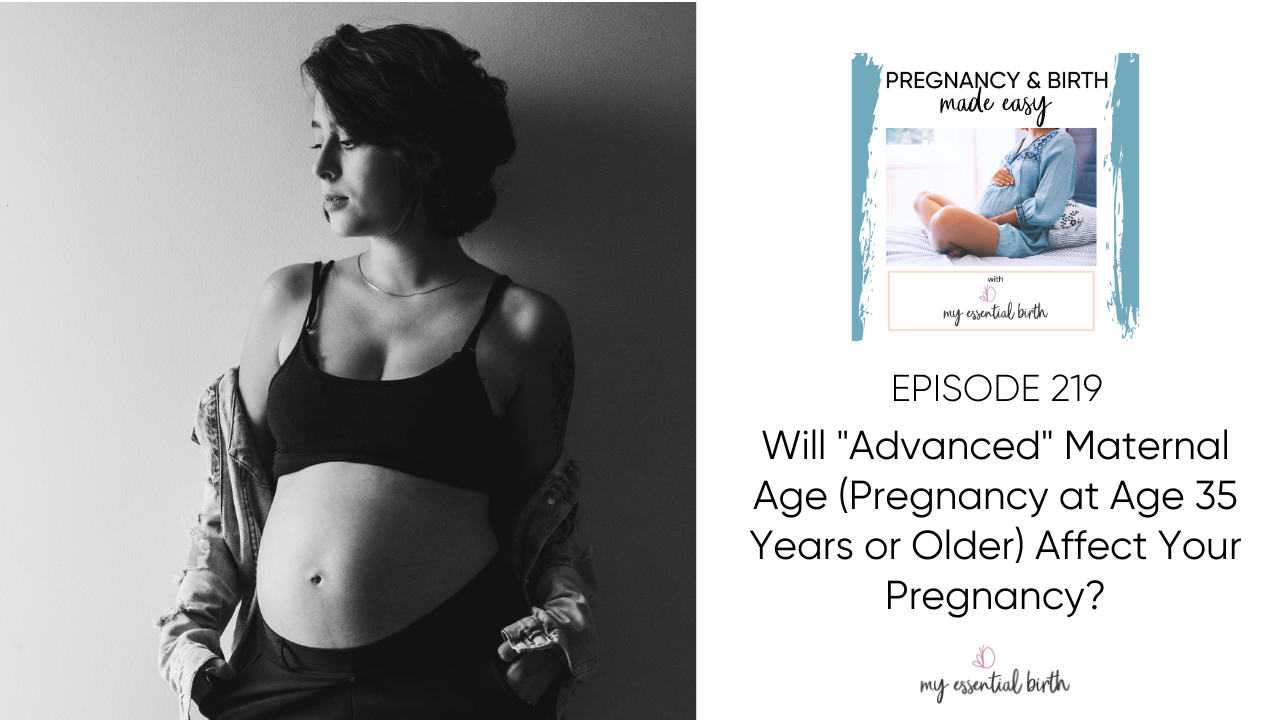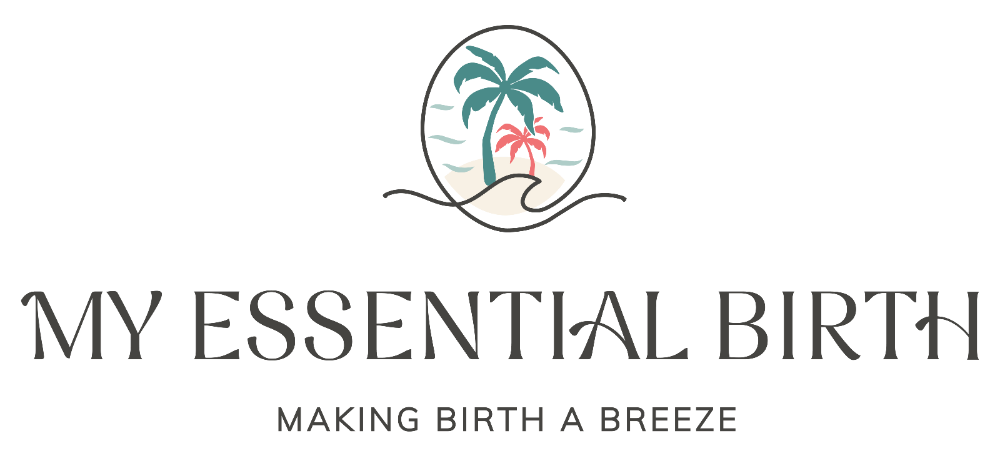
Will "Advanced" Maternal Age (Pregnancy at Age 35 Years or Older) Affect Your Pregnancy?
Show Notes:
[2:01] Our Reviewer of the Week is JackieP2022, and she says, "I absolutely love this podcast and literally recommend it to every single pregnant woman I see and to friends and family who are starting their pregnancy journey! I truly believe knowledge is power especially in a world where women tend to have to advocate a little harder than we’d like. I have a 16-month old and my husband and I are starting our journey of adding another babe so naturally I need to re-listen and listen to all the new episodes. Words can’t describe how much I love the podcast - keep doing what you’re doing and know your work is SO appreciated.
[3:05] Today's podcast episode is actually based off of some questions that I've gotten recently on Instagram. Our topic has to do with being pregnant over the age of 35, which is considered "advanced maternal age."
[3:48] One of our moms asked us "Do you have any thoughts on NSTs, which those are non stress tests for low risk women who are 35? Should I do the non stress test or just try to monitor my baby's kicks myself?" I'm going to cover both of these today, but I'm also going to go a little bit deeper than that! If you are pregnant and 35 or older, you'll want this info to refer back to!
Geriatric pregnancy is a term that is used for pregnant women who are generally 35 and older. Some providers will say 40 and older, but typically it's going to be around that 35 mark. ACOG, American College of Obstetrics and Gynecology, says the age cutoff is based on declining infertility, genetic abnormalities, and risks for miscarriage and stillbirth.
[7:10] Let's talk about declining fertility! When we as women are born, we are born with all of the eggs that we will have our entire lives. As you get older, you have less eggs, so they're less chance of fertility. Because the eggs themselves are older, they have a higher chance of having some abnormalities in them just from being an older egg.
[8:50] As far as the genetic abnormalities go, there are certainly increased risks, specifically with Down Syndrome. When you are 35 years old, you're looking at a 1 in 294 chance versus a 1 in 1000 chance at age 25.
[9:18] Sometimes, what can happen is our bodies detect certain abnormalities or signals that something is not right and can cause stillbirth and miscarriage.
[10:14] Depending on how we take care of our bodies, hereditary genetics, or whatever that we're dealing with (things like preeclampsia, high blood pressure, diabetes, kidney disease, etc.) can also put you in a high risk category, having nothing to do with your age.
[10:53] Risk of a pregnancy ending in a miscarriage for women at age 30 is 18%. That statistic rises for women aged 35 to about 22%, which is a significant increase from one age to the next. At age 40, it increases to about 38%, and they say that it rises to 70% for women who are aged 45 and older. Keep in mind that the study did not necessarily take into account the health of mom and her habits.
[13:43] Whether or not you are age 35 or not, your provider will try to offer you an induction at some point in time during your pregnancy, and it'll probably be around 39 weeks. Once you are in that older category, it might even be offered more aggressively.
[18:53] I think it's really important that you have a good working relationship with your provider, and it's so important to have a provider that is listening to you. Because you know the most about your body, period. I don't care if that provider has delivered 10,000 babies. You know your body best. Period.
[19:11] When you're searching for a provider, look for a provider, if you are over the age of 35, who doesn't immediately treat you like you are high risk or that this is a problem pregnancy.
[22:58] Things happen gradually. It's not like you turn 35, and all of a sudden everything goes to crap, and we're going to have a really terrible experience. All these risks are shooting off the chart now and stuff. That's not the case. How's your health been?
[24:37] Let's talk about those things that you can do to stay healthy and low risk. If you are doing your part to remain healthy and low risk, eat a healthy, well balanced diet, eat tons of protein during pregnancy, drink tons of water, and exercise regularly.
[28:52] I know a lot of moms want to know, "If I'm over 35, how is this going to affect my birth plan?" The truth is, it really shouldn't affect it a lot. I also want to encourage you, if you are over the age of 35, you can still have an uncomplicated, unmedicated birth if that is what you are looking for.
To Leave a Review ⭐️
- Open Apple Podcasts
- Find “Pregnancy & Birth Made Easy” podcast
- Select “Ratings and Reviews”
- Click the stars!
- Select “Write a Review” and tell us what was the most amazing, comforting, eye-opening thing that you loved!
ALL the best,

Links Mentioned:



